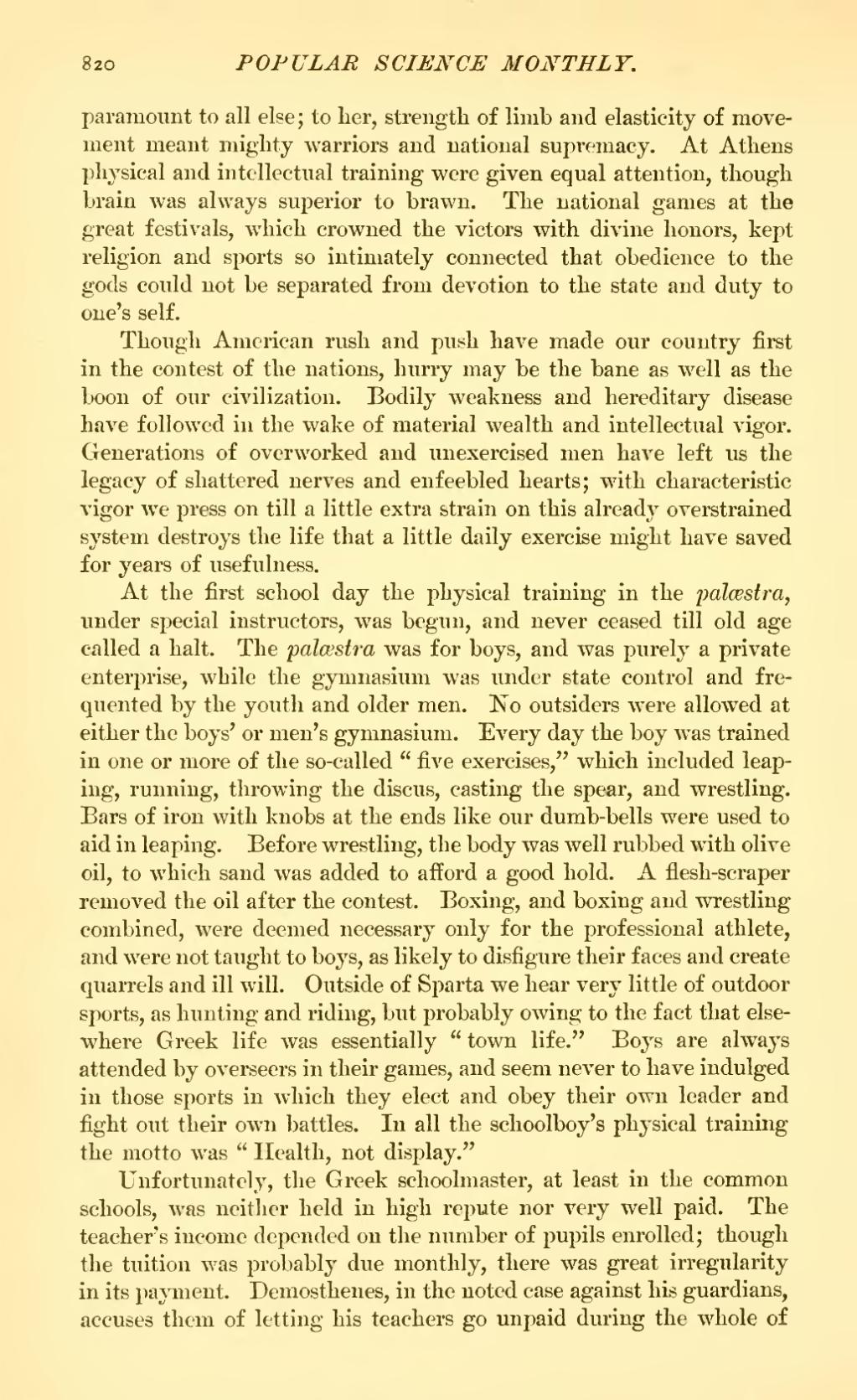paramount to all else; to her, strength of limb and elasticity of movement meant mighty warriors and national supremacy. At Athens physical and intellectual training were given equal attention, though brain was always superior to brawn. The national games at the great festivals, which crowned the victors with divine honors, kept religion and sports so intimately connected that obedience to the gods could not be separated from devotion to the state and duty to one's self.
Though American rush and push have made our country first in the contest of the nations, hurry may be the bane as well as the boon of our civilization. Bodily weakness and hereditary disease have followed in the wake of material wealth and intellectual vigor. Generations of overworked and unexercised men have left us the legacy of shattered nerves and enfeebled hearts; with characteristic vigor we press on till a little extra strain on this already overstrained system destroys the life that a little daily exercise might have saved for years of usefulness.
At the first school day the physical training in the palæstra, under special instructors, was begun, and never ceased till old age called a halt. The palæstra was for boys, and was purely a private enterprise, while the gymnasium was under state control and frequented by the youth and older men. No outsiders were allowed at either the boys' or men's gymnasium. Every day the boy was trained in one or more of the so-called "five exercises," which included leaping, running, throwing the discus, casting the spear, and wrestling. Bars of iron with knobs at the ends like our dumb-bells were used to aid in leaping. Before wrestling, the body was well rubbed with olive oil, to which sand was added to afford a good hold. A flesh-scraper removed the oil after the contest. Boxing, and boxing and wrestling combined, were deemed necessary only for the professional athlete, and were not taught to boys, as likely to disfigure their faces and create quarrels and ill will. Outside of Sparta we hear very little of outdoor sports, as hunting and riding, but probably owing to the fact that elsewhere Greek life was essentially "town life." Boys are always attended by overseers in their games, and seem never to have indulged in those sports in which they elect and obey their own leader and fight out their own battles. In all the schoolboy's physical training the motto was "Health, not display."
Unfortunately, the Greek schoolmaster, at least in the common schools, was neither held in high repute nor very well paid. The teacher's income depended on the number of pupils enrolled; though the tuition was probably due monthly, there was great irregularity in its payment. Demosthenes, in the noted case against his guardians, accuses them of letting his teachers go unpaid during the whole of
